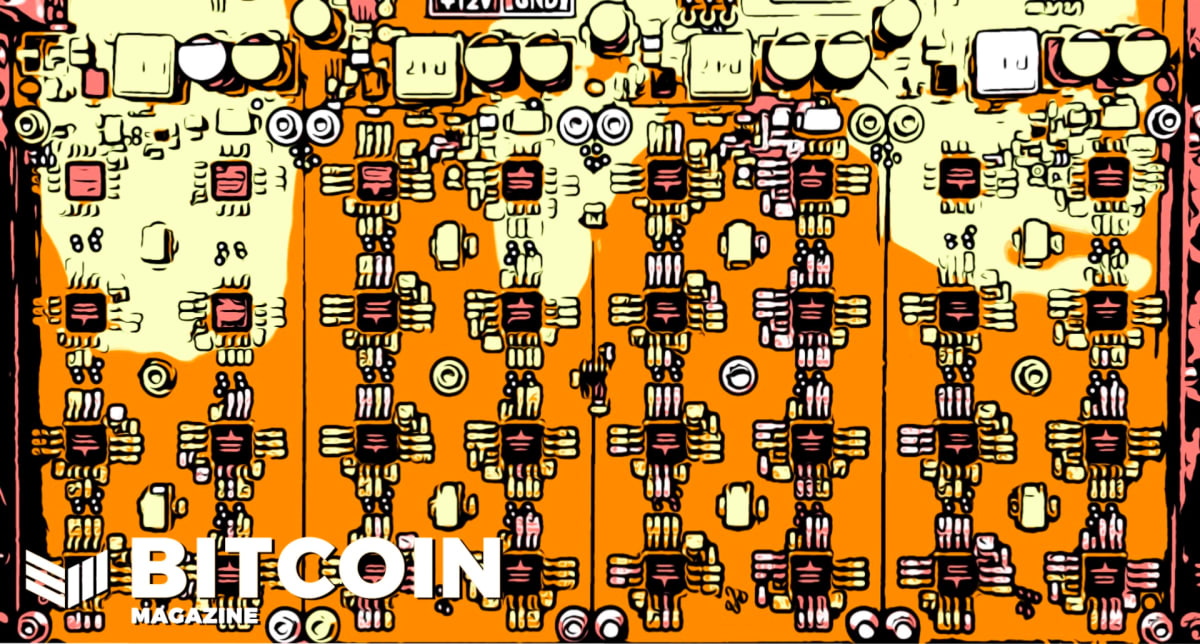Bitcoin is a universal consensus that could be a framework for grand operations of connectivity.
In a previous piece I argued that Bitcoin provides society with the strongest possible truth-based foundation from which to build upon and that therefore its widespread adoption is necessary for life on earth to take its next great leap forward. I believe this leap forward will be driven primarily by strengthening human connections thus resulting in a stable matrix of minds bound together by reliable consensus. This mind matrix in its fullest form will be analogous to the way in which gravity weaves together all matter and provides the stable conditions for complex life to evolve.
Bitcoin is the inter-universal constant that the human hive mind has been searching for since we split from the apes many hundreds of thousands of years ago. It is the constant required for the construction of a global and timeless human civilization. Its closest correlate in the physical realm is the gravitational constant of classical physics known as Big G, or 6.674×10−11 m3⋅kg−1⋅s−2 . Big G or “gravitational constant” is the force that binds all matter to all other matter. A striking thing to consider is that there literally exists gravitational attraction between all physical things. Your pinky feels the pull of Pluto, and Alpha Centauri feels the pull of your big toe. Each atom is sovereign unto itself and is affected by gravity but also emanates gravity to all other atoms.
OK fine, but what the hell is meant by “inter-universal?” To paraphrase Walt Whitman, “the human mind is a universe unto itself (I contain multitudes).” While our inner worlds are unspeakably vast, we nonetheless can feel the boundaries and wonder what lies on the other side. Looking into my wife’s eyes, the black holes of her pupils feel at once familiar and foreign. How can one not wonder what goes on deep within those inky wells? What is it like to be someone else? We can never fully know. Each human mind then is distinct and sovereign, but also isolated in some tragic way. The human mind yearns for connection, it yearns to know that it’s not alone and that reality is not just its own elaborate hallucination. A strong connection to another person not only ameliorates isolation but also expands one’s own horizons by bringing the mind into contact with all the incongruencies of another. These new ideas now have the potential to expand or otherwise transfigure one’s own mental landscape. This is what drives our social instinct.
Society can therefore be thought of as a collection of personal universes connected in meaningful ways. You could say that the degree of interpersonal connection is also the degree to which a society can be said to exist at all. Connections require bridges. The bridges that are erected between human minds are love and consensus. Loving someone is like opening a Lightning channel in which benevolent attention is the currency (and like the Lightning Network’s liquidity, it can go one way). Consensus (like validating) is an overlap of mental states that allows distinct minds to temporarily experience a shred of oneness. An agreement on something, however trivial it may be, is a recognition of some similarity between two sovereign minds. It is a confirmation that you are not alone and it opens up the possibility for collaboration thereby extending each individual’s personal capabilities. This is the basis upon which trade and entire economies are built and the font from which much of the world’s wealth flows. Agreement can be golden. But it can also be fragile, as can be love.
Today’s fracturing world makes it abundantly obvious that even the most stalwart institutions, which are really just large conglomerations of consensus, can fail. Institutions such as democracy, religion, the press, the healthcare system, the education system and the “free market” exhibit the same frailty as individual relationships. Bridges of connection are built and fade away. They are ephemeral. This too shall pass. Love, trust, and agreement can be broken and lost; returning us to more isolated and therefore less capable states.
In many ways the story of history has been the story of humanity striving to construct more elaborate and more robust connective tissue between human minds; to bridge the lonely multitudes. But alas, there has never been a universal bridge or a universal constant of human connectivity from which to build these bridges. Thus far there have only been localized versions prone to failure and erosion; incapable of achieving escape velocity on a global and timeless scale. These local bridges allow one person to love another, and for bands of people to temporarily agree on things, even cosmic things such as life, death and the afterlife. But as the scale of these bridges in both time and space increases, their stability wanes until a breaking point is reached. None are universally stable.
Let’s compare again the human hive mind with its many ephemeral connections to the physical realm. If gravity were similarly localized, it would be like a universe in which the gravitational constant only extends for a few square miles or a handful of years before disintegrating and changing. This kind of flux would prohibit complex life from forming and thriving. Everything you see around you would turn to a chaotic gaseous goo. There would be no stars and no planets. No puddles or oceans from which life could unfold.
Our human world suffers from a similar state of instability. Who owes who what? What is fair? When value is created can it flow freely like a river and pool in areas of greatest depth? Can its stewards count on its properties and its magnitude in order to undertake long term projects of great complexity yielding transcendent value? Sadly the answer is no. Bitcoin however is a universal constant for human connectivity. It is the same for everyone everywhere and it is likely to persist for a very long time. No one can take my bitcoin. No one can dilute it. No one can stop me from sending it to anyone in the world. Every transaction is predicated on the rock solid consensus of the network but also the voluntary consensus between the two transacting parties. For the first time we have a consensus mechanism that exists beyond the reach of individual human meddling and therefore optimizes interpersonal consensus. Bitcoin aligns incentives and grows from adversity in a way that yields an ever increasing bedrock of truth. Human minds, like matter bound together by gravity, now have ironclad bridges to every other human mind that exists and potentially to every human mind that will ever exist. We can now project our value and values with higher fidelity than ever before. Shifting one’s energy and life force into the Bitcoin network therefore helps shift human enterprise into a realm where gravity exists, where the principles of engineering allow for sound construction, and where human connections can strengthen and proliferate.
Gravity gave us galaxies, stars, planets and life in the physical realm. Bitcoin may enable similar emergent majesty in the more abstract realm of the human hive mind. May we use this new-found power to enhance human flourishing and advance this shared project called civilization. May we use the growing mind matrix created by Bitcoin as a foundation to build a more beautiful world.
This is a guest post by Fangorn. Opinions expressed are entirely their own and do not necessarily reflect those of BTC Inc. or Bitcoin Magazine.









